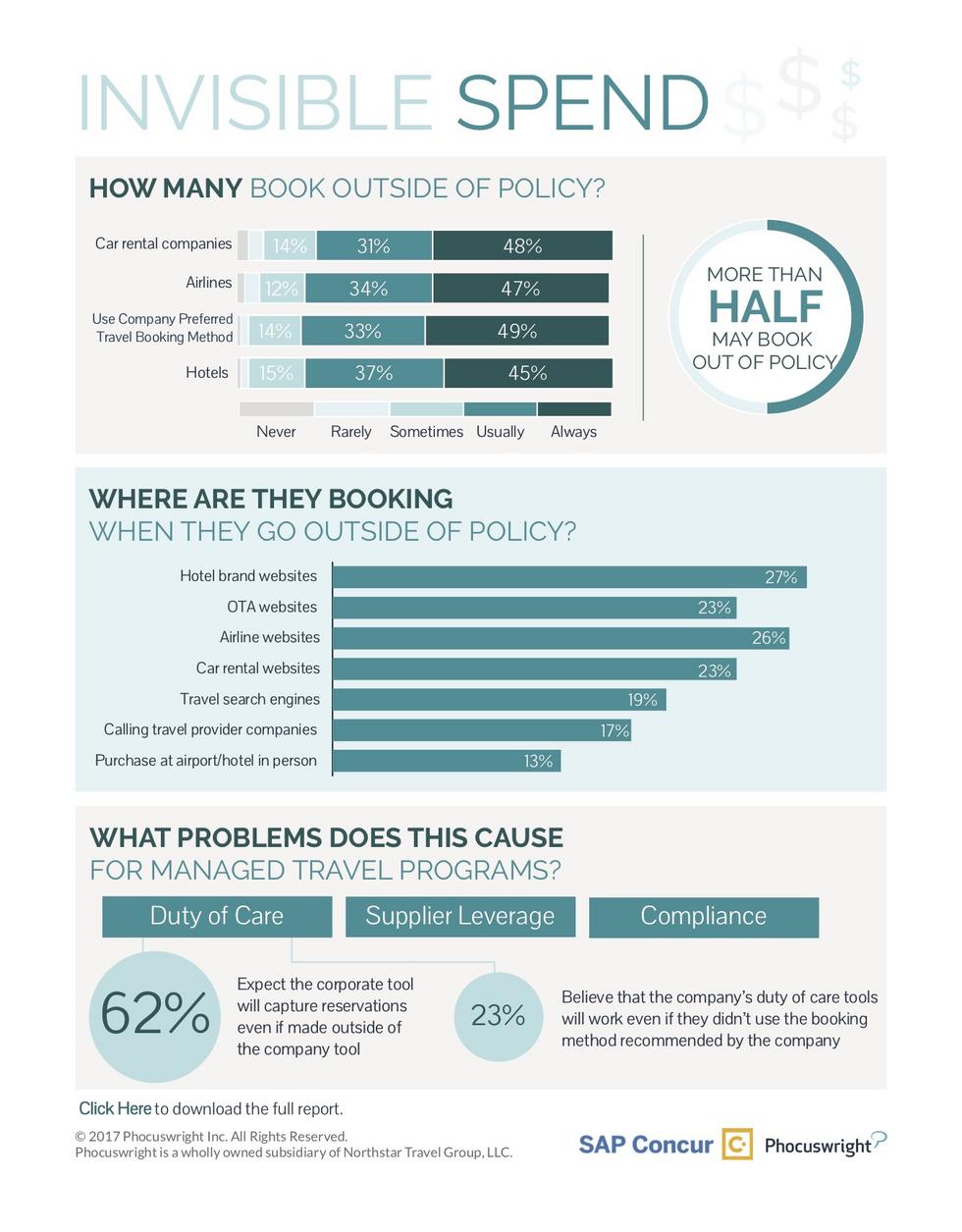3 Ways Invisible Spend can Impact Your Travel Program
Corporate travel management has changed a lot in the last few decades – and dramatic shifts in business needs, employee expectations, and the technological landscape have only accelerated the changes in the last few years. Travel managers at every business find it challenging to keep up with apps and devices that offer hundreds of new ways to book travel and spend company money. These new methods of booking travel constitute what is often called invisible spend, which is defined as “corporate travel data not captured by traditional means such as TMC reporting.” Getting ahead of the changing tide of corporate travel is a worthy pursuit for your business, because invisible spend can also hurt your business in unseen ways.
In a recent report, the research firm Phocuswright, which studies how travelers, suppliers and intermediaries connect, put some concrete data behind the seismic shifts that have been happening in the travel industry. For example, the firm surveyed 2,300 business travelers and found that 88% of them relied on smartphones on business trips, leading to new traveler behaviors and difficulty in measuring adoption and compliance.
Without the ability to identify and capture that data and then turn it into better policies and greater compliance, companies run the risk of falling victim to some surprising complications. For example, a few of the hurdles that invisible spend creates include:
1. It can hurt your supplier negotiations: Having employees that are compliant with policy is paramount to strong supplier negotiations. When travelers ensure that all of their travel data is captured, that means the company has the ability to use all of its travel volume during supplier negotiations. Securing the best possible corporate rates is crucial to keeping company costs controlled, and invisible spend can pose a big obstacle here.
2. It can result in compliance issues: One challenge that travel managers compete with is the subtle balancing act of meeting business needs while keeping traveler satisfaction high. Employees will be less likely to stray from company travel policy if they have the tools they prefer. But if they don’t have those tools, that may not stop them from booking the way they want anyway, not only contributing to policy compliance issues, but also violating legal accounting obligations.
3. It can pose risks to traveler safety: More important than any money or policy is the physical safety of employees – but invisible spend may also put that in jeopardy. The ability to capture invisible travel spending doesn’t only give travel managers and accountants all the fiscal information they need, but it also allows them to locate employees more easily if the situation requires.
To learn more about how your business can avoid these pitfalls, read the full Phocuswright study today.

